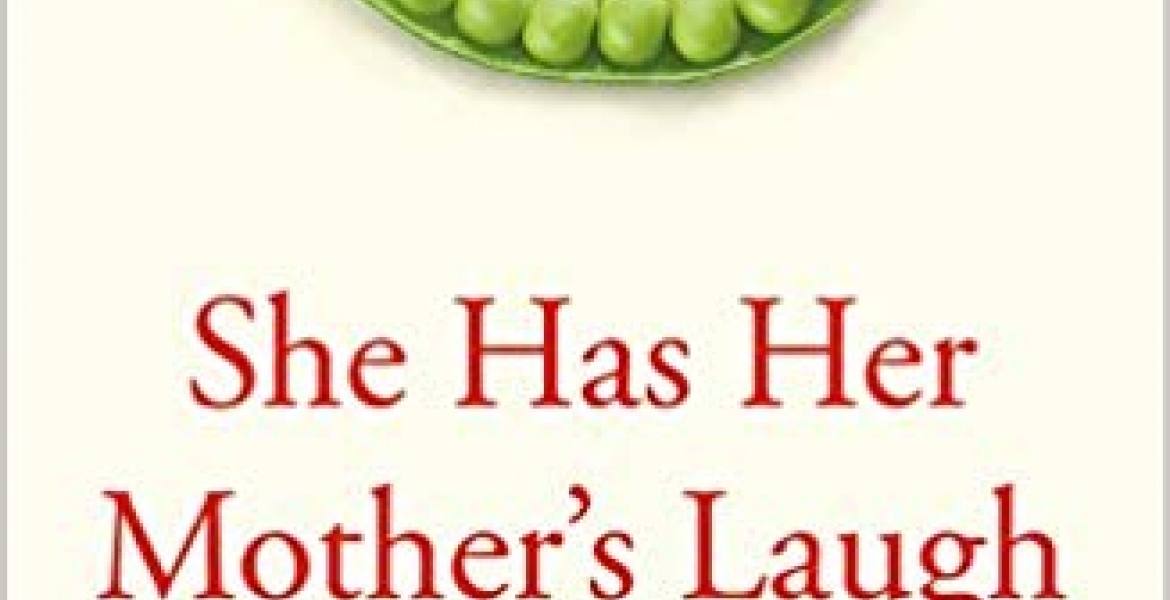Popular science: She has her mother’s laugh
Although I spend a lot of time reading science, and since shifting from the bench to the desk I have been able to expand my horizons, I still love a popular science book. Over the last few weeks I’ve been reading “She has her mother’s laugh” by Carl Zimmer, which was recommended in the Nature end-of-year reading list in 2018.*
As far as I could tell, the reason for writing the book was that the author had had his genome sequenced, and rather than taking the analysis provided by the company having done the sequencing, that spurred him to seek expert opinion and analysis. He didn’t restrict himself to this very inward-looking (and potentially uninteresting/irrelevant**) perspective, and from there, the scope of the book expanded to deal with heredity - mainly from a genetics point of view - including social heredity and how humans have evolved to learn from each other.
Now, I like genetics, I’ve always found it an intriguing subject and I am proud to boast that in my undergraduate years I got a personal letter from the head of the genetics department congratulating me on an exam result (and suggesting that I might consider it as a career avenue, I didn’t immediately follow-up on that suggestion). I also like the stories of one of my earliest heroes, Mendel, and how he determined the basics of genetic heredity through observation and experimentation. I like to get up on my feminist high-horse when I am reminded about how Rosalind Franklin was treated, and is almost never acknowledged for her role in discovering the structure of DNA (I’m not going to even mention those other two, they’ve had more than enough publicity already. Although I will admit to liking their article [Nature volume 171, pages737–738(1953)], and how they kept it short and sweet). But what I particularly like about the broader topic is that we still don’t understand half of what heredity entails, it’s actually a lot more complicated than the sequence of bases on our chromosomes – there’s plenty of scope for further study in the field – and the nature/nurture debate is ongoing. It probably never will be concluded; mammals are a complex group of animals. In fact, this debate, and what scientists make of it, is what spurred me to write this review: the author cited an article that I had worked on. Honestly, the gratification that that gave me, it was almost as if he had cited something I had written myself!
The article in question was an opinion on Genome-Wide Association Studies (GWAS) by Françoise Clerget-Darpoux and Anne Cambon-Thomsen. I clearly remember how working on HOW SERIOUSLY SHOULD WE TAKE RISK PREDICTIONS FOR MULTIFACTORIAL ILLNESSES? had modelled my vision (or maybe I should more honestly say reinforced my prejudices) on the relevance of widespread genetic testing for disease-associated variants. In their opinion piece, Clerget-Darpoux and Cambon-Thomsen argue that most diseases are caused by a combination of factors, some of which may be identified as genetic, but many of which are environmental (lifestyle and eating habits, living conditions, environmental factors, stress, education, sociodemographics, etc.), and so attempting to discover genetic markers of any particular disease through GWAS is not really relevant or likely to provide strong results or anything much beyond a correlation/risk factor.
Unfortunately, I didn’t really enjoy the rest of She Has Her Mother’s Laugh itself much beyond that point, there were some interesting chapters, but I felt that some points were glossed over a bit too quickly, or – and this might be because I’m used to reading articles for publication in specialist journals – presented in over-simplified terms or based on over-personal anecdotes. Maybe I’m not really in the target audience for this particular book, and the author is a science journalist rather than a scientist – he therefore has some specialised knowledge, but not to the same degree that someone who actually works in the field would. Another drawback for me was that it felt like a long read (although I have just checked, and it comes in at less than 600 pages), possibly because there weren’t (m)any funny bits to keep you going!
So, overall, after the thrill at the start, a bit of a disappointment.
*I admit to having shamelessly exploited this list for Christmas present ideas for my fellow nerds.
** Further reinforcing my prejudices with regard to genome sequencing: https://www.theguardian.com/commentisfree/2019/nov/12/ant-and-dec-dna-test-all-inbred-historical-connections

